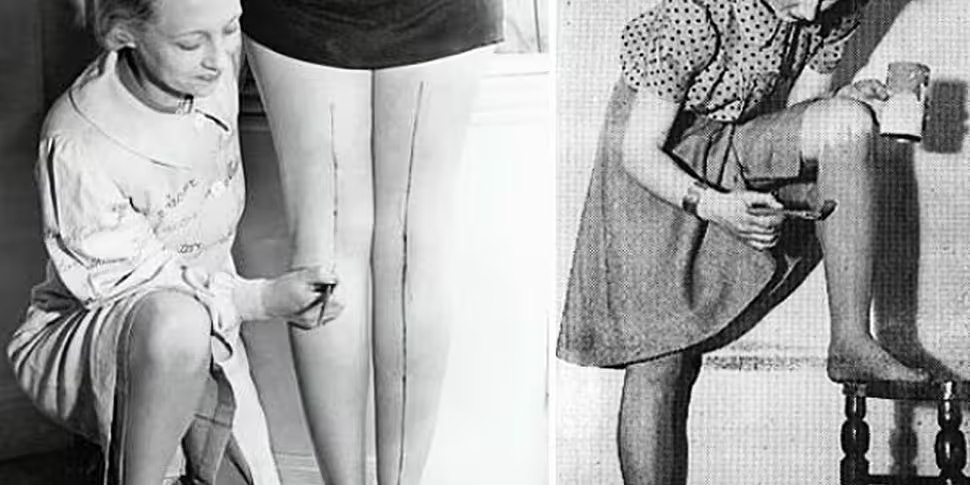During the war, the UK’s Board of Trade and the Ministry of Information were the authorities in charge of rationing clothing and everyday goods. Despite the shortages, British women received communication through a number of different ways telling that that beauty was their duty, and that they had to not only make do with what they had, but also strive to look beautiful and well turned out as part of their war effort.
On today's The Right Hook, George finds out how women got around make-up rationing, when he speaks to Laura Clouting, curator of Fashion on the Ration, a new exhibition at the Imperial War Museum in London.
Tune in at 6.20pm: http://www.newstalk.com/player/
Booklets, posters and advertisements were published encouraging women to take good care of their old clothes, to mend them instead of buying something new. Detailed instructions on how to proceed did not hide the underlying political message that the morale of the British people depended on a good appearance. If women failed to take care of their clothes, or walked around in threadbare garments, the mood of the nation would suffer.
Tips were given on how to lengthen and hem dresses, how to mend corsets and patch knickers, all in dutiful language designed to instil a sense of patriotism to the UK’s war-effort. Here are some excerpts from the Board of Trade’s publications:
- 'Keep up the morale of the Home Front by preserving a neat appearance.' (1940)
- 'England expects economy of clothes, economy of coupons, but an abundance of well-dressed women.'(1943)
- 'Although the rationing of clothes is a war-time necessity, there is no need for a woman to lose that feeling of cheerful confidence which comes from the knowledge that she is well dressed.’ (1943)
- 'The appearance of a frock or suit is often spoilt by an ill-fitting corset. Great care should be taken to keep these trim and well repaired.'(1944)
- 'Always change into old things, if you can, in the house, and give clothes you have just taken off an airing before putting them away.'(1943)
But it wasn’t just the government that issued these kinds of instructions to women, but also fashion magazines.
British Vogue was keenly interested in doing its civic duty, pushing women to do more with less, issuing similar instructions as the Board of Trade, but told through a knowingly reassuring female voice.
The editors of women’s magazines received the notes from the government, and encouraged women to dress their best not only for the nation’s morale, but also for the boys fighting away from home, and to show resistance to the enemy. While their verdicts on contemporary style might be considered by their readers as statements of fact today, during the Second World War articles in Vogue read like propaganda:
- 'What our government asks us to give up, we shall give up cheerfully, proudly.'(1942)
- 'To be as attractive as we can is almost a civic duty; there are so many sad and ugly things in the world that I think women should say to themselves humbly, not with vanity "I will try to be as pretty as I can, so that when people look at me, they will feel refreshed. I will make an effort to be easy on the eye." (1942)
- 'Fashion has slowed into the tempo of a steady marriage, for it takes too many coupons to have clothes with which one falls in and out of love.'(1942)
- 'The woman who could change instantly into uniform or munitions overall and look charming, soignée and right is the smart woman of to-day.'(1942)
- 'Clothes may be practical, but it is inexcusable for them to be dull. A well-cut top-coat in raspberry-red will keep you just as warm and twice as chipper as one of poor-house brown.'(1942)
Britain's wartime women took up the challenge of rationing while maintaining beauty standards, and endured without complaint - it was the right thing to do for the nation, and it made them more creative and engineering with what they had. And with the country's administrative and fashion authorities telling them that beauty was their duty, they thoroughly believed it would help turn the tide in their favour.









